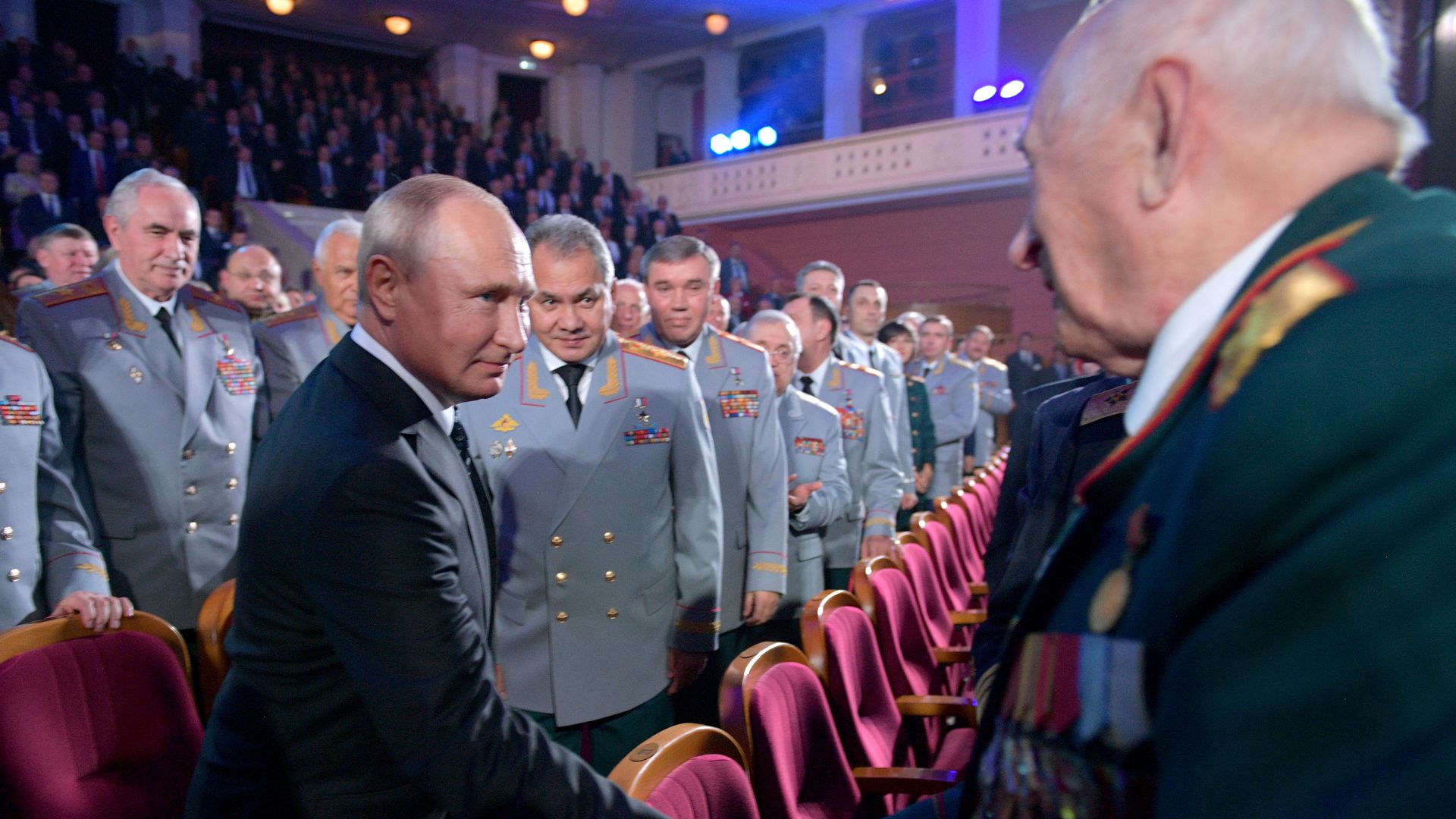Oct 19, 2020 - Politics & Policy
U.S. charges Russian intelligence officers for cyberattacks beginning in 2015
Add Axios as your preferred source to
see more of our stories on Google.

Putin at an event celebrating the Russian military. Photo: Alexei Druzhinin\TASS via Getty Images
